What is driving the increase in marriages between Syrian women and local men in neighboring countries?
LONDON: Informal advertisements for “affordable Syrian brides” have circulated on Iraqi social media platforms in recent months, many of which perpetuate clichés about Syrian women with phrases such as: “Marry a Syrian woman for $100 and enjoy delicious food and an engaging dialect.”
The controversial posts, which have attracted local media attention, are captioned as if advertising movable goods. One reads: “You can listen to to'borni (a Syrian term of endearment) at home for just 500,000 dinars,” the equivalent of $380.
Men promoting the trend complain about the exorbitant mahrs demanded by Iraqi women, often ranging from $10,000 to $20,000, locals told Arab News. On top of that, they say, potential Iraqi brides also often demand property, expensive jewelry and cars.
In Muslim societies, the mahr is an obligatory gift from the groom to the bride as a form of security and respect, often given legal force in marriage contracts.
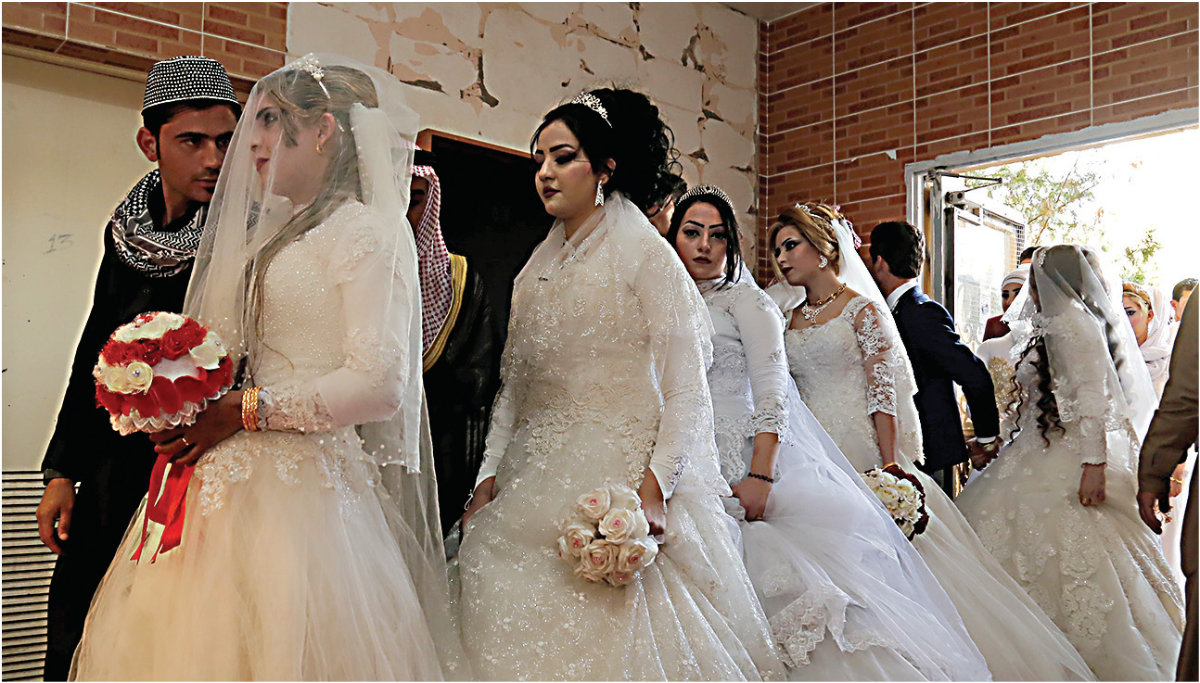
Syrian Kurdish brides and grooms during a mass wedding ceremony organized by the Barzani Charity Foundation in Irbil, Iraqi Kurdistan. File photo for illustrative purposes only. (Anadolu Agency/Getty Images)
The sheer volume of posts online, particularly on the video platform TikTok, suggests the trend is genuine. Commentators have expressed outrage at the posts, finding the rhetoric demeaning to both Syrian and Iraqi women.
More than a decade of violence, displacement, economic hardship and uncertainty has already eroded the dignity of Syrian women. Now, in neighboring countries where they have sought safety and economic security, they endure a form of commodification.
Many Syrian women, finding themselves the sole breadwinners for their families, have sought work in neighboring countries, including Iraq, as the economic situation in their home country worsens.
Faced with the harsh reality of being a single woman in a conservative society and in countries where the law offers limited protection, some have agreed to marry locals for little or no mahr.
Sattam Jadaan Al-Dandah, Syrian ambassador to Iraq, revealed in January that around 5,000 marriages between Syrian women and Iraqi men were documented in 2023 alone.
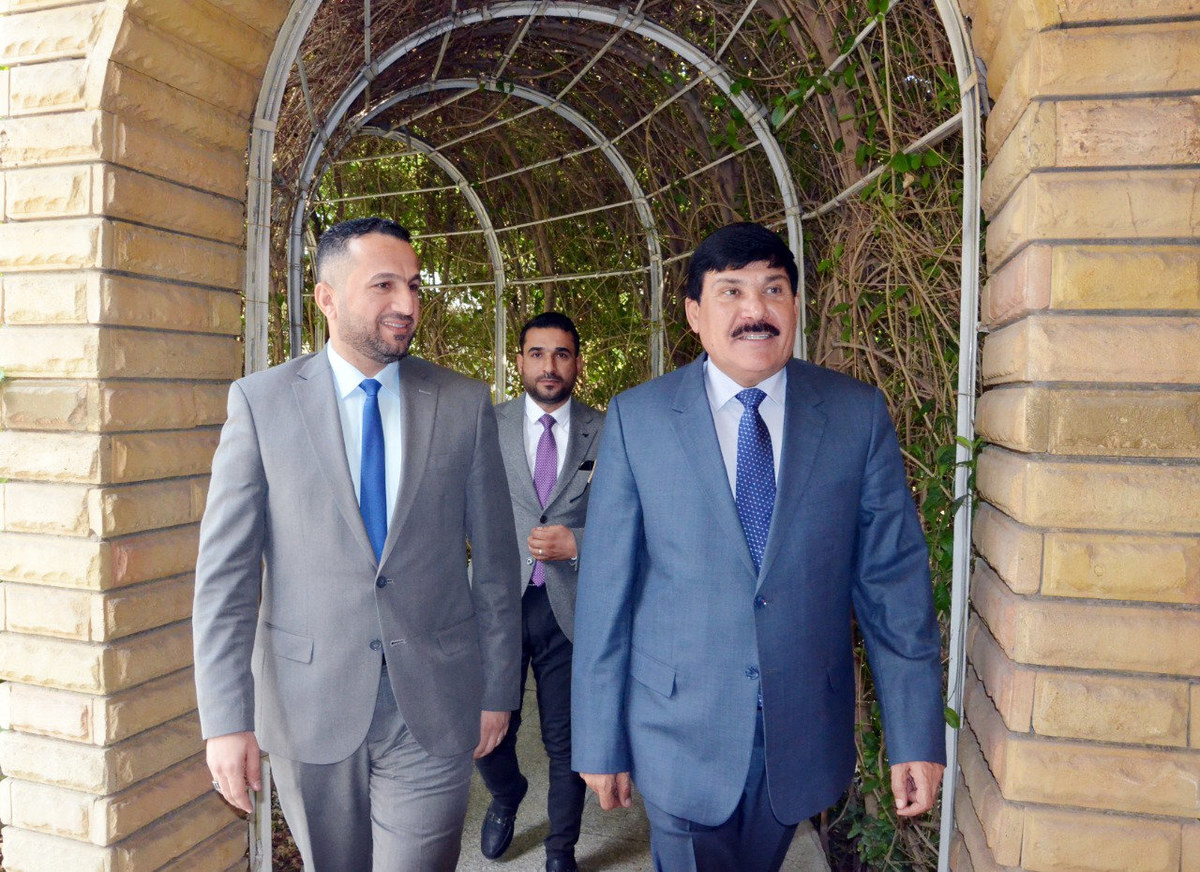
Syrian Ambassador to Iraq Sattam Jadaan Al-Dandah confirmed the trend of Syrian refugee women marrying Iraqis. (Supplied)
According to the United Nations Development Programme’s 2024 Gender Inequality Index, Iraq is the world’s fifth worst-placed country for women and girls, despite many recent efforts to address gender inequality.
“Syrian women in countries like Iraq, where the law does not provide adequate protection, often face harassment, exploitation and even trafficking,” Mouna Khaity, a Syrian feminist and researcher based in the UK, told Arab News.
“The main reasons why Syrian women accept such arrangements, and many even seek them, in almost all neighbouring host countries are the need for protection and the desire to escape a deteriorating economic situation.”
Thirteen years of conflict and economic sanctions have pushed 90 percent of Syria’s population below the poverty line, creating a new social norm where families struggle to survive without women’s labor.
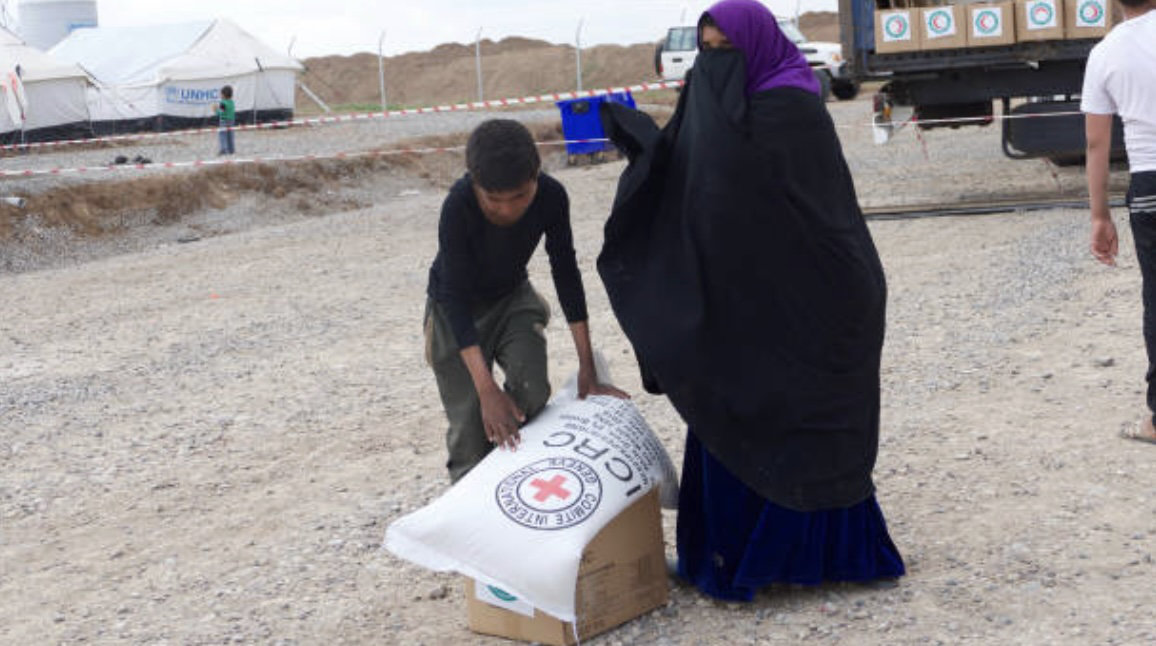
After years of war in their country, many Syrian women have found themselves the sole breadwinners for their families. (AFP)
“Under relatively normal circumstances, women’s and girls’ communities and families would provide some level of protection, although sometimes this involves unwanted intervention or even control,” Khaity said.
The erosion of this protection due to displacement has made Syrian women and girls more vulnerable.
According to United Nations data, approximately 5.4 million Syrians live in five countries in the region (Turkey, Lebanon, Jordan, Iraq and Egypt) and more than 70 percent of them are women.
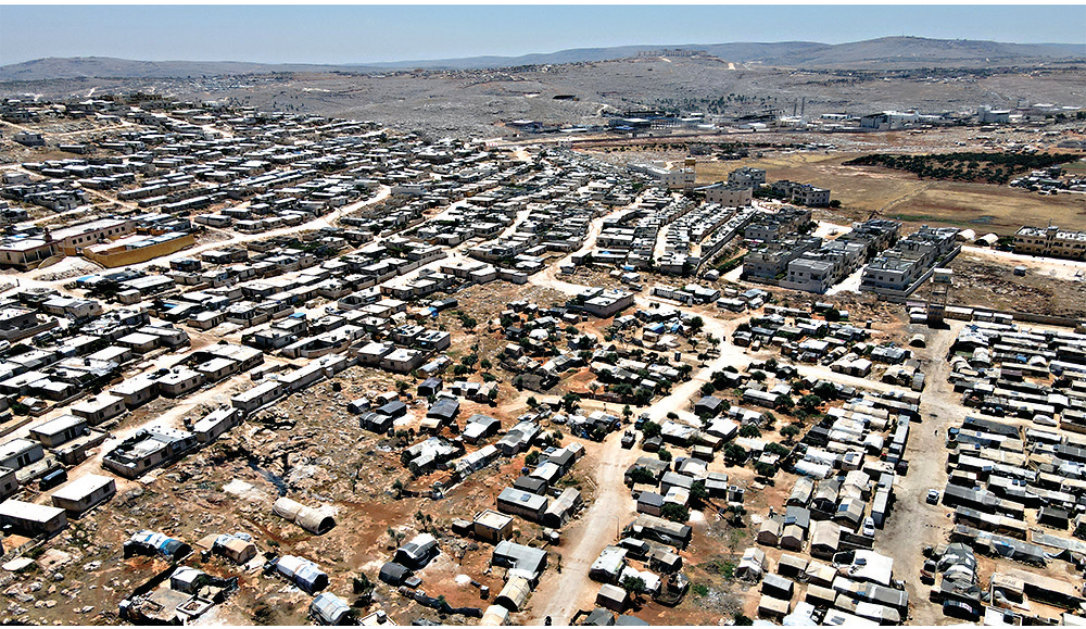
After 13 years of civil conflict, a lack of international funding has severely compromised the provision of basic services such as water, waste disposal and sanitation in refugee camps in northwestern Syria, according to the United Nations. (AFP)
“Women in need of protection will accept a lower mahr than women living under the protection of their families in their home countries,” Khaity said.
However, a woman's decision to marry for economic reasons “is often not a personal choice, but a collective decision of the family, in which women, even girls, are convinced that this is an opportunity for a better life.
“This often happens in refugee camps, where women don’t even have a choice, and marriage to a local man can be perceived as a convenient way to transform themselves from beneficiaries of charity into dignified and protected women.”
In 2016, the Norwegian Refugee Council reported an alarming increase in child marriages within Syrian refugee communities, with girls as young as 13 being forced into marriage.
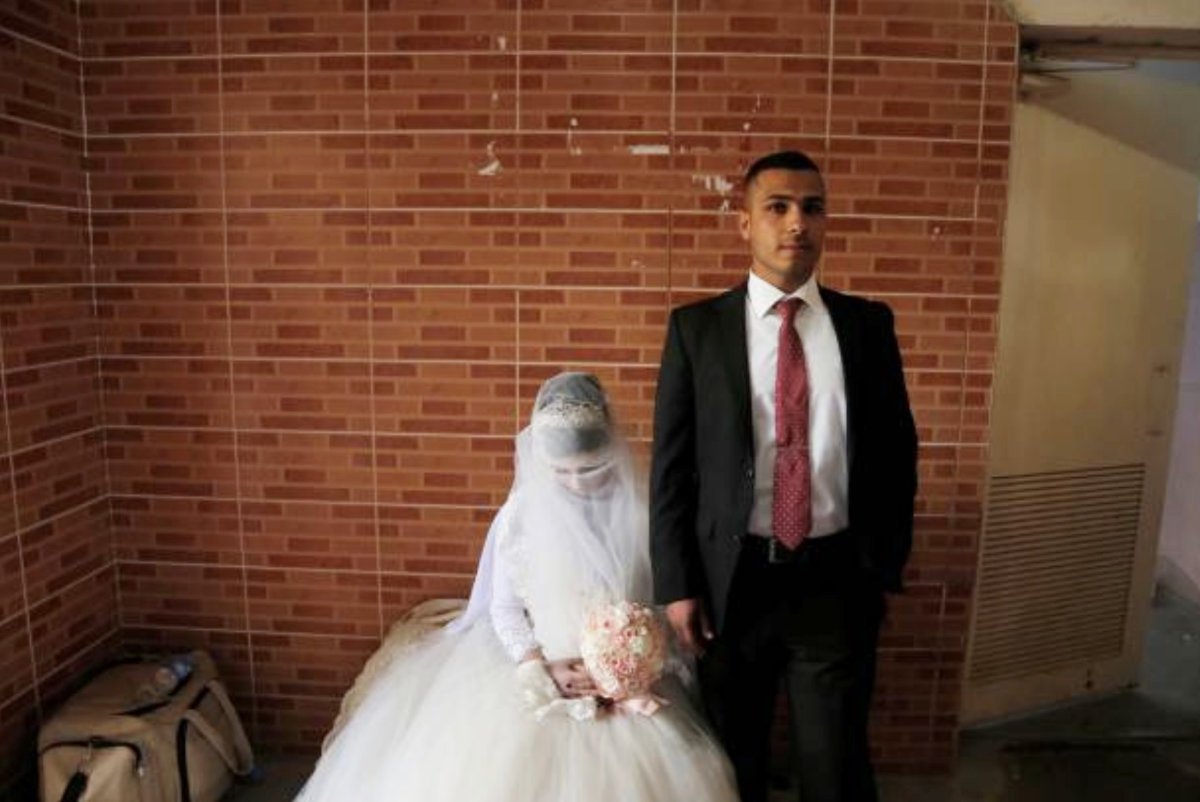
The rising number of child marriages within Syrian refugee communities has alarmed child protection advocates. Photo for illustrative purposes only. (Getty Images)
A 2023 report by American Near East Refugee Aid, an NGO that serves the needs of refugees and vulnerable communities in Palestine, Lebanon and Jordan, found that 41 percent of Syrian refugee women between the ages of 20 and 24 in Lebanon were married before they turned 18.
Stressing that the situation was created by “levels of discrimination and injustice,” Khaity said that the blame for such marriages should not be placed solely on individuals or families, but on “entire systems” that have normalized the exploitation of Syrian women through a lack of accountability.
“Neighboring countries have not sought to integrate Syrian refugees, who are excluded from local communities and exploited by politicians for economic gain,” he said.
Deeply entrenched economic gender inequalities have always disadvantaged women, and war has only widened this gap, despite the increase in the percentage of women earning an income.
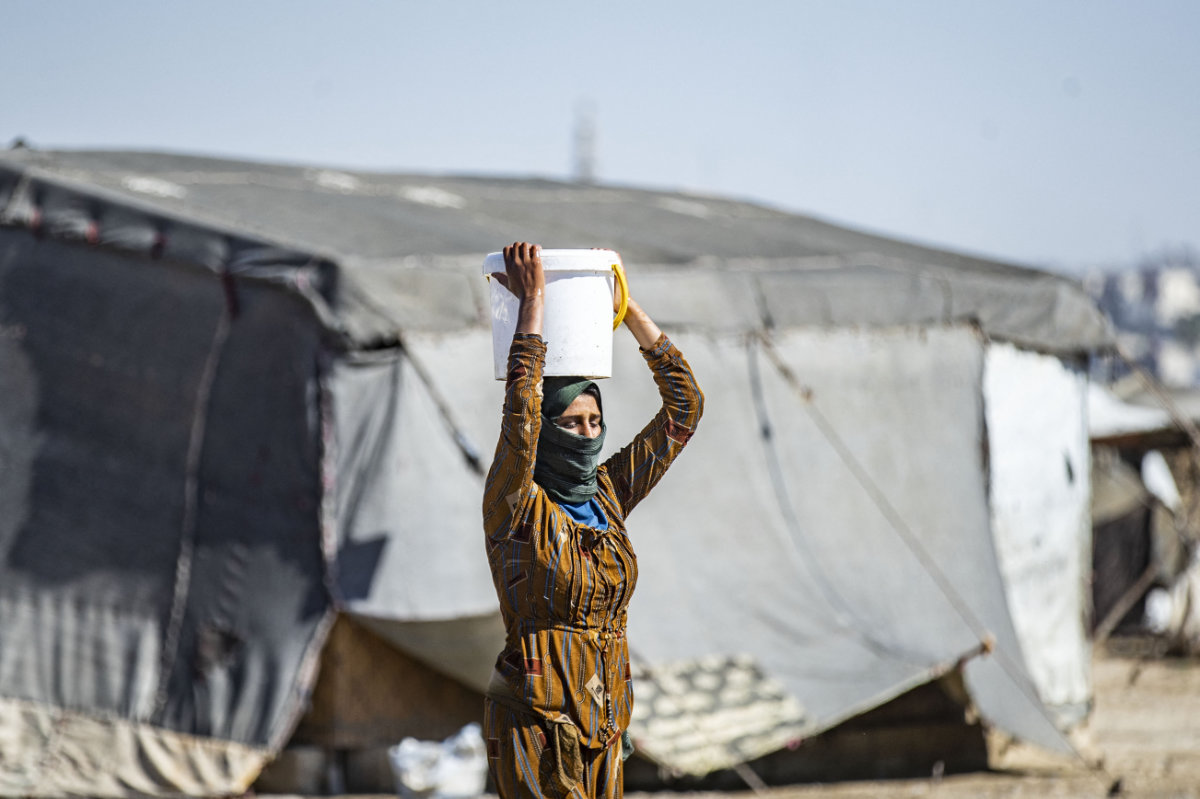
After years of war in their country, many Syrian women have found themselves the sole breadwinners for their families. (AFP)
“Middle Eastern societies have historically accumulated wealth in the hands of men, forcing women to be largely dependent on men,” Khaity said, adding that this was achieved through “political systems, social norms and religious institutions.”
“Obedience to husbands has often been linked to men's superiority and financial dominance and, consequently, to women's dependence on them. There are financial resources that women cannot access.”
She added: “The war has deepened inequalities, impoverished the majority of the population, increased the vulnerability of women and displaced millions of people, all of which has devastated Syrian society.
“Therefore, many Syrian women have sought to marry locals in host countries as a means of protecting themselves, and often their families, from all kinds of indignities, particularly in societies that have shown them hostility.”
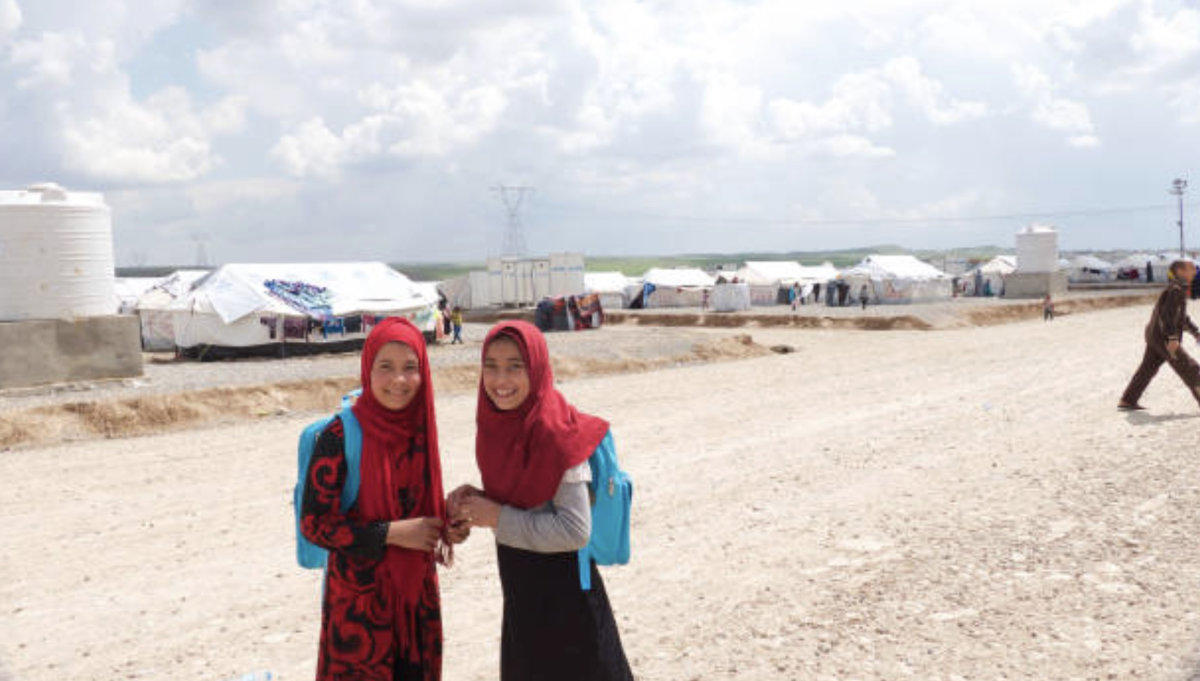
The erosion of this protection due to displacement has made Syrian women and girls more vulnerable. (AFP)
Since the outbreak of civil war in 2011, which forced millions of people to flee abroad, Syrians in Lebanon, Turkey and Jordan have repeatedly faced waves of violence and threats of deportation.
Douna Haj Ahmed, a Syrian human rights activist living in the UK, believes this new status quo “has created a form of modern-day slavery where Syrian women are commodified and traded under the guise of marriage.”
She told Arab News that marriage deals promoted on Iraqi social media “reduce women to mere objects for sale,” calling the phenomenon “a stark reminder of how conflict and poverty can lead to the resurgence of slavery-like systems of exploitation.”
She added: “Such exploitation is not only immoral, but also profoundly inhumane. Marriage should be based on mutual respect and genuine affection, not on the exploitation of the needs of the more vulnerable party.”
Thirteen years of conflict and displacement have put Syrian women in “a class of their own,” Khaity said. “There is tolerance for the dehumanization of Syrian women, who are now perceived as having fewer rights.”

Syrian Kurdish brides and grooms during a mass wedding ceremony organized by the Barzani Charity Foundation in Irbil, Iraqi Kurdistan. File photo for illustrative purposes only. (Anadolu Agency/Getty Images)
Both activists also believe that Syrian women have been commodified by deceptive TV dramas. Iraqi TikTok posts promoting marriage to Syrian women even feature clips from controversial Syrian programs that portray Damascus women as part of an obedient and attentive harem.
Khaity says the drama genre known in Syria as “Al-Bi’a Al-Shamiyeh” — or Damascus culture — has propagated a “false, historically inaccurate and unfair image of Syrian women and their role in society.”
Since the 1990s, numerous Syrian dramas have portrayed the women of Damascus as glamorous beauties with an innate talent for cooking, housekeeping, and seduction. They rush to satisfy their husbands’ needs, rub their feet, shower them with affection, and even hand-feed them.
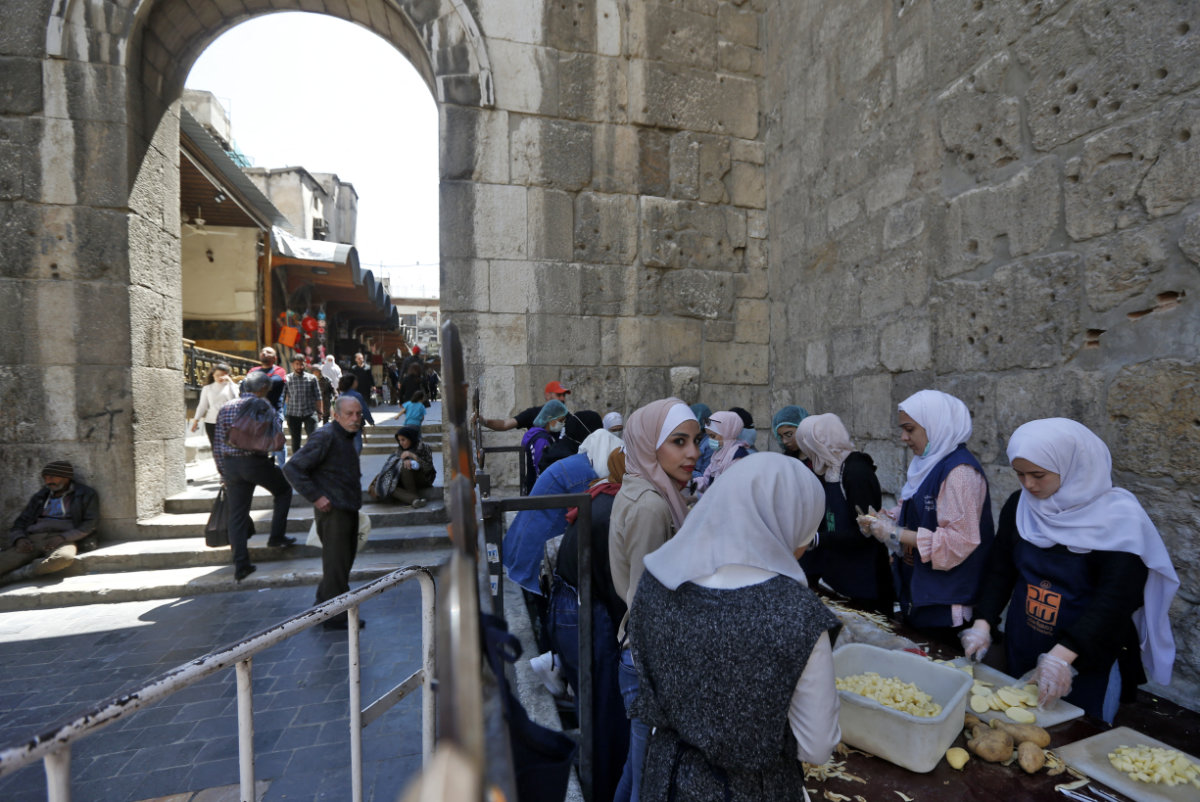
Syrian women were portrayed in a popular TV series as obedient servants of their husbands, who during the day only took care of household chores, such as cooking and cleaning, and at night provided pleasure to their husbands. (AFP/Archive)
The popularity of Syrian television series in the Arab world has played a significant role in creating and reinforcing these harmful stereotypes.
“For decades, the Syrian drama has perpetuated the image of the Syrian woman as an obedient servant of her husband, whose life revolves around satisfying his needs by cooking and cleaning during the day and pampering and entertaining him at night,” said Haj Ahmed.
“This negative portrayal has reinforced outdated and misleading ideas about the role of women in Syrian society.”
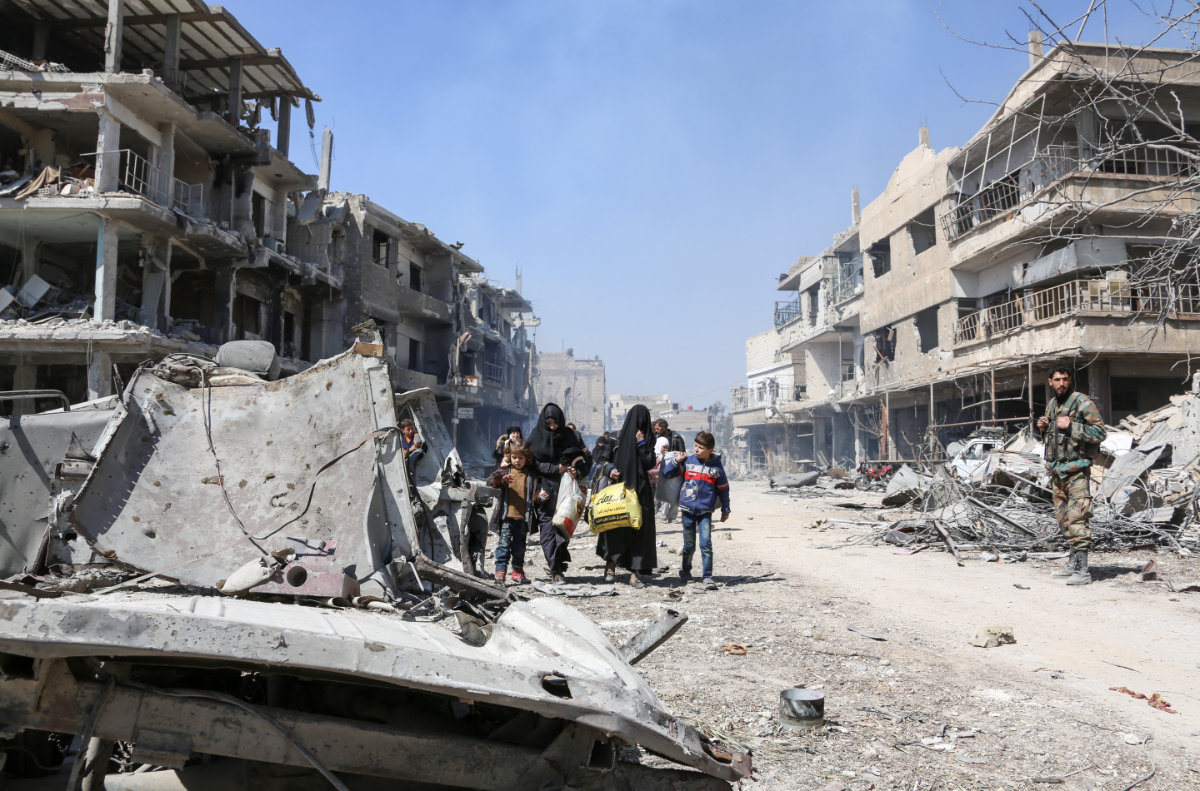
The long war in Syria has left hundreds of thousands of women and children vulnerable to abuse. (AFP/Archive)
Haj Ahmed said that, in the context of difficult economic circumstances, “many young people in Arab countries saw the war in Syria as an opportunity to fulfill unhealthy desires for marriage.
“They have exploited the vulnerability of Syrian girls caused by war and poverty, forcing some Syrian families to make harsh compromises and accept any suitor for their daughters in a desperate attempt to ease the family’s financial burden.”
She added that the social media trend promoting Syrian brides for $100 “goes beyond discrimination and hate speech” to “reflect the patriarchal mindset that objectifies women, particularly in times of war and disaster.
“This narrative confirms that women are among the first to suffer in such situations. What Syrian women are experiencing is a recurring scenario for women in all conflict zones.”

